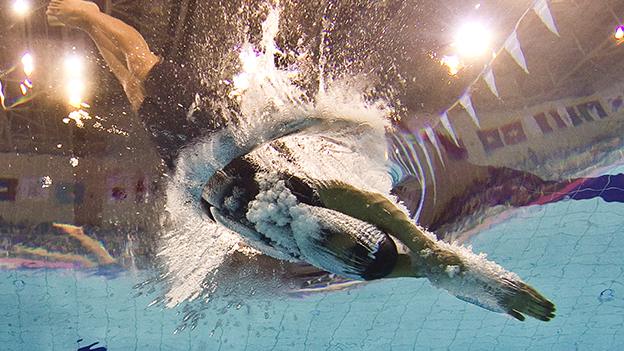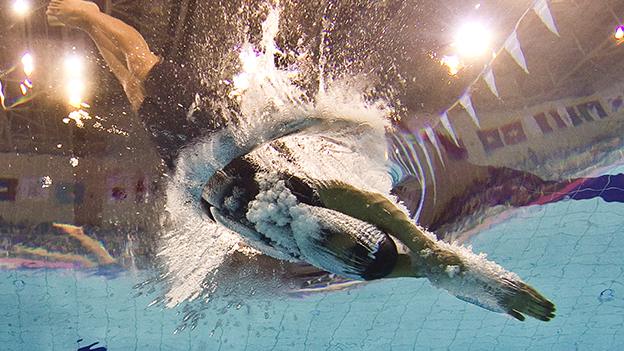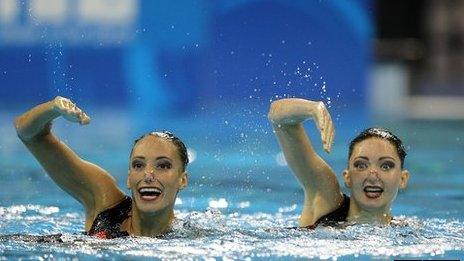Swimming body 'not aware' of Russia doping scandal evidence
- Published

Swimming's world governing body says it is "not aware" of any "concrete evidence of systemic doping" among Russian swimmers, despite allegations made in a newspaper investigation.
The Times says, external it has "evidence of an organised drugs culture" similar to the one in Russian athletics.
Earlier this month, Russian swimmer Yuliya Efimova, external was suspended after testing positive for meldonium.
Russia's athletes are currently banned from international competition.
Fina said it had taken a "particularly robust approach" to Russia after a World Anti-Doping Agency (Wada) independent commission report exposed widespread doping practices in Russian athletics.
It pledged to investigate any new doping claims "substantiated by evidence".
The Russian Swimming Federation has rejected the allegations that it was covering up positive tests for doping among its athletes, R-Sport news agency reported.
Fina has previously announced that the world's best swimmers will face up to seven anti-doping tests, external in the run up to August's Rio Olympics.
Drug-testing in swimming - the numbers |
|---|
Fina carried out 1,094 out-of-competition tests on 654 athletes in 2015 |
It also carried out 815 in-competition tests on 569 athletes last year |
Fina spent £560,000 on anti-doping in 2015 - approximately one tenth of the figure that cycling's governing body, the UCI, spent |
Wada said it was aware of the claims that appeared in The Times and added that the allegations come at a time when "trust in clean sport is already in a perilous state".
It said it had already written to Fina, with Wada president Craig Reedie adding: "There is no doubt that today's disturbing assertions of orchestrated doping in Russian swimming should be scrutinised."
British Swimming chief executive David Sparkes said the sport is taking a "strong position" on doping, shown by the number of cases reported.
- Published15 February 2016

- Published27 March 2018

- Published19 July 2013
